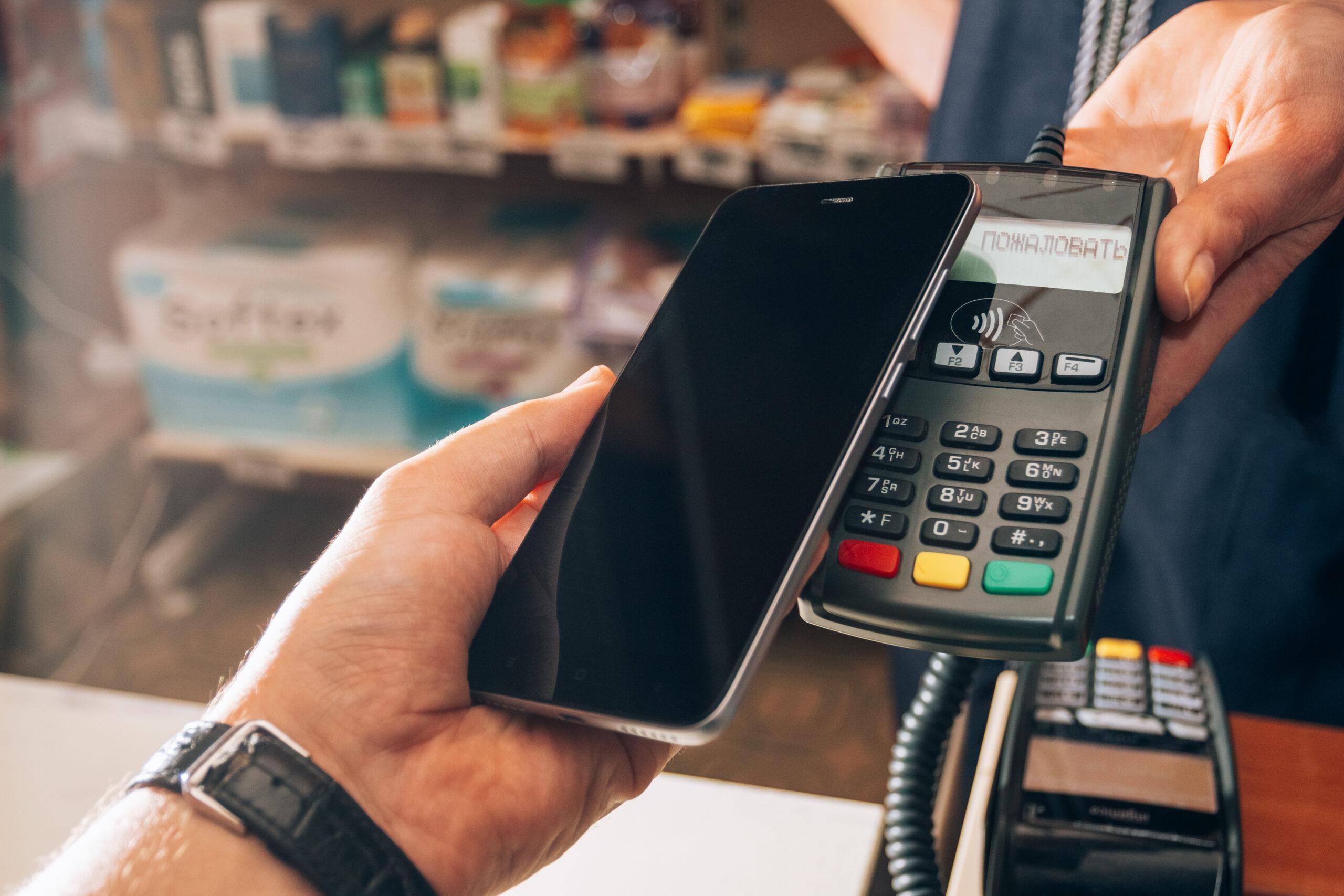MENU
Starting a Business
- Best Small Business Loans
- Best Business Internet Service
- Best Online Payroll Service
- Best Business Phone Systems
Our Top Picks
- OnPay Payroll Review
- ADP Payroll Review
- Ooma Office Review
- RingCentral Review
Our In-Depth Reviews
Finance
- Best Accounting Software
- Best Merchant Services Providers
- Best Credit Card Processors
- Best Mobile Credit Card Processors
Our Top Picks
- Clover Review
- Merchant One Review
- QuickBooks Online Review
- Xero Accounting Review
Our In-Depth Reviews
- Accounting
- Finances
- Financial Solutions
- Funding
Explore More
Human Resources
- Best Human Resources Outsourcing Services
- Best Time and Attendance Software
- Best PEO Services
- Best Business Employee Retirement Plans
Our Top Picks
- Bambee Review
- Rippling HR Software Review
- TriNet Review
- Gusto Payroll Review
Our In-Depth Reviews
- Employees
- HR Solutions
- Hiring
- Managing
Explore More
Marketing and Sales
- Best Text Message Marketing Services
- Best CRM Software
- Best Email Marketing Services
- Best Website Builders
Our Top Picks
- Textedly Review
- Salesforce Review
- EZ Texting Review
- Textline Review
Our In-Depth Reviews
Technology
- Best GPS Fleet Management Software
- Best POS Systems
- Best Employee Monitoring Software
- Best Document Management Software
Our Top Picks
- Verizon Connect Fleet GPS Review
- Zoom Review
- Samsara Review
- Zoho CRM Review
Our In-Depth Reviews
Business Basics
- 4 Simple Steps to Valuing Your Small Business
- How to Write a Business Growth Plan
- 12 Business Skills You Need to Master
- How to Start a One-Person Business
Our Top Picks
Table of Contents
Whether it’s to increase productivity or decrease costs, auto-dialers have plenty of use cases that make them a reliable tool. They are mainly used in the healthcare, hospitality and sales sectors. In addition, many telemarketing companies use auto-dialing to power marketing campaigns.
Other professionals can use auto-dialing to save time and money. For example, a school may use automatic dialing to alert parents of a surprise closure, or a doctor’s office can set it up to remind patients to take medication.
Learn how auto-dialers work, the pros and cons of using them, and the various types on the market, as well as some examples of solutions businesses can leverage.
What is an auto-dialer, and how does it work?
Auto-dialers are tools used to automatically call phone numbers. There are various types on the market with different features and functionality.
You need four things to use an auto-dialer:
- A computer running auto-dialer software
- A human operator ready to answer calls
- A voice modem
- An active telephone or VoIP (Voice over Internet Protocol) line
Auto-dialers increase the chances of reaching another person on the line rather than voicemail. They use special software and a modem so the computer being used can dial a long list of phone numbers.
Depending on how advanced the software is, a computer can sometimes detect if a live person is on the phone and transfer calls to a human operator. This seamless transition may save only a few seconds, but that time adds up and can make operating business phone systems more efficient in the long run.
VoIP eliminates the need for specific equipment. The voice modem allows the computer to play previously recorded audio over the telephone line. The more modern a computer you have, the more concurrent calls a call center can make.
Auto-dialers are often used in the healthcare, hospitality and sales sectors.
Additionally, VoIP systems offer benefits, such as convenience, excellent sound quality and versatility, and they’re typically more cost-effective than traditional legacy systems. If you have yet to switch over from your plain old telephone service, consider the benefits of using a VoIP business phone system.
The auto-dialer software tells the computer which numbers it should dial and how to proceed if there’s a busy signal, the call goes to voicemail or someone picks up the phone. Auto-dialers pick from a database of leads rather than calling numbers randomly, which is now referred to as “war dialing.”
>> Learn More: Should You Use VoIP Numbers?
Call centers benefit from auto-dialers when the software uses predictive dialing. When it does, agents simply transition from one call to another and are immediately connected.
What are the pros and cons of auto-dialing?
Here are the pros and cons of auto-dialing and how it can impact a business’s internal operations.
Pros of auto-dialing
- It reduces idle time for call center agents.
- Many types of auto-dialer software are available.
- It improves the speed of outbound calls.
- It can run multiple campaigns simultaneously.
- It helps organize databases.
- It can generate leads and convert sales.
- It improves operational efficiency.
Cons of auto-dialing
- There’s a chance of inaccurate detections.
- There can be problems with predictive algorithms.
- You might need more call agents.
While the cons are certainly worth considering, it’s clear there are many positives to using auto-dialers. The most significant benefit is that they speed up much of the calling process by automation and in many cases are more cost-effective than other business phone systems.
>> Learn More: Multi-Line Phone Systems
Auto-dialers are part of a general trend in many industries in which companies are looking toward automation to fuel business growth and achieve more goals in a shorter amount of time.
Some auto-dialing software can detect if a person answers the phone and transfer that call to a human operator.
Types of auto-dialers
It’s important to know what types of auto-dialers are available, as certain systems may be more suited to one business type than another.
Here are the types of auto-dialers your business may want to consider using to reap some of the benefits we discussed above.
- Preview dialer: Agents can decide whether or not to field a call depending on the information provided beforehand.
- Predictive dialer: This system determines whether or not to field a call based on the success of reaching the individual on the other end. Voicemails and busy signals will result in the termination of the call.
- Progressive dialer: This system ensures that every agent is connected to the next call once they’re available.
- Voice broadcasting: A recorded message is delivered to voicemail or individuals based on a preset. If the system cannot connect, it will try again later.
- Smart predictive dialer: This type of dialer places calls, plays recorded messages, and passes calls to agents when the individual calling requests to speak with a live person.
All these types of auto-dialers have their place in call centers. Each can be used to create more seamless, effective communication. They have unique advantages that could assist different types of organizations and their services.
>> Learn More: Does Your Business Need an IVR?
In combination with other technologies, any of these dialers can maximize the outreach of a call center and allow agents to provide better customer experiences.
Top auto-dialer solutions
Here are the top six auto-dialer solutions that call centers can leverage to improve customer experience and operational efficiency.
1. Five9
Five9, a leader in cloud communications, is a software company that offers viable solutions for call centers. It’s one of the better-known auto-dialer software solutions, having served over 2,000 businesses for roughly 20 years.
According to its website, Five9 can help companies increase productivity by as much as 300%. Partnering with Five9 is simple, with monthly or annual payment plan options and powerful, scalable, and secure cloud solutions. Learn more in our review of Five9.
2. NICE CXone
NICE InContact’s CXone is another solution for call centers. Its predictive dialer software allows agents to connect to recipients quickly and easily, boosting productivity by allowing agents to make more daily calls.
3. Nextiva
Nextiva is a VoIP company based in Arizona that focuses on cloud-based communication solutions. You can integrate your customer relationship management (CRM) system with Nextiva’s products, allowing you to reap the benefits of both systems’ capabilities. Nextiva works with some of the best CRM software, such as HubSpot, Zendesk, Salesforce and SugarCRM. Learn more in our full review of Nextiva.
4. Talkdesk
Talkdesk is an artificial intelligence- and cloud-based contact center software provider that serves over 1,800 innovative enterprises. Major corporations and organizations such as IBM, Canon, Fujitsu and the Wounded Warrior Project use Talkdesk to improve efficiency.
Additionally, Talkdesk solutions can integrate with other software that helps boost productivity, such as Salesforce, BigCommerce and Google Workspace.
>> Learn More: Optimize Your Network for VoIP
5. RingCentral
RingCentral serves businesses of all sizes in industries such as healthcare, retail, education, government and nonprofits, to name a few. RingCentral focuses its efforts on business communication solutions, helping clients provide high-quality customer experiences and video and messaging services. Learn more in our review of RingCentral.
6. LiveVox
LiveVox is an award-winning cloud contact center provider for industries like healthcare, financial services and customer care. Its auto-dialing system provides answering machine detection to minimize idle time. Its dialing strategies include Right Party Connects, Quick Connect and Message Only. LiveVox provides TCPA- and FDCPA-compliant auto-dialing services and products.
Plenty more auto-dialer solutions are available to businesses. It’s always best to do your research and contact auto-dialer software companies to learn more about what they can offer and which problems they can help you solve.
What to look for in auto-dialer solutions
When researching various companies and the solutions they offer, you need to know which factors to consider. Here’s what to look for when choosing an auto-dialer software provider:
- Cloud-based speed dialing sourced from a computer
- Ability to manage outbound calls with CRM software
- Telephone Consumer Protection Act (TCPA) compliance
- Options to pace calls
- Detailed reporting for outbound calls
- Ease of navigation
- Whisper coaching
- Multichannel customer support
It can be challenging to know which type of software will drive your business forward and help you accomplish more of your objectives, but these factors can help you decide which one will fit your needs best.
Here is some more information about TCPA compliance from the FDIC. The TCPA also applies to text message marketing, so you should be familiar with all applicable laws before using any type of phone marketing.
Auto-dialing expected to grow in the future
By 2025, the global auto-dialer market is expected to grow at a compound annual rate of 9.2%, reaching an estimated $542.7 million, according to IndustryArc. More companies will likely emerge in this field to offer clients robust automation solutions.
>> Learn More: Know When You Need to Upgrade Your Phone System
The growth of call centers, rising automation across all industries, and high demand for cloud-based dialing software will all contribute to the development of this sector.
CRM comes with challenges, but some of these solutions can make it much easier. Auto-dialer software can be leveraged to improve these relationships. Better customer service will help improve any company’s long-term profitability.










